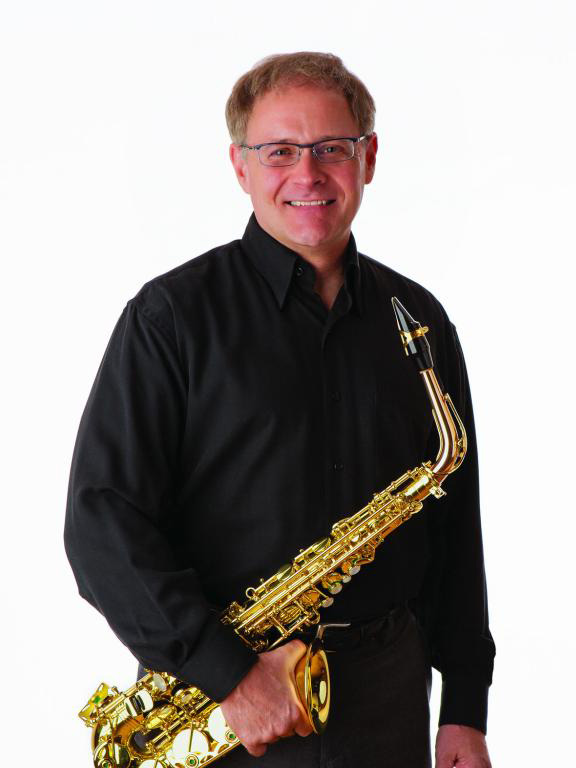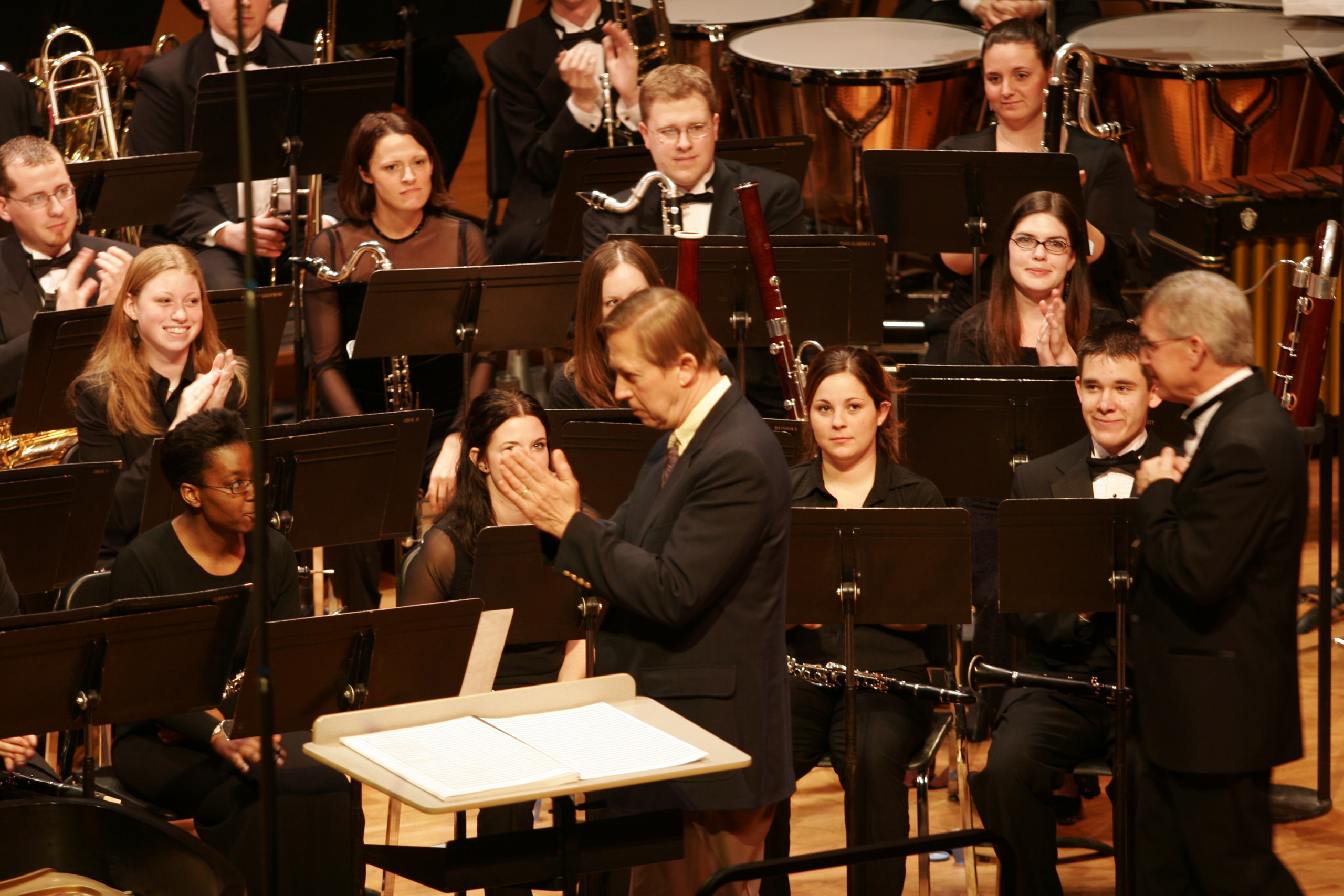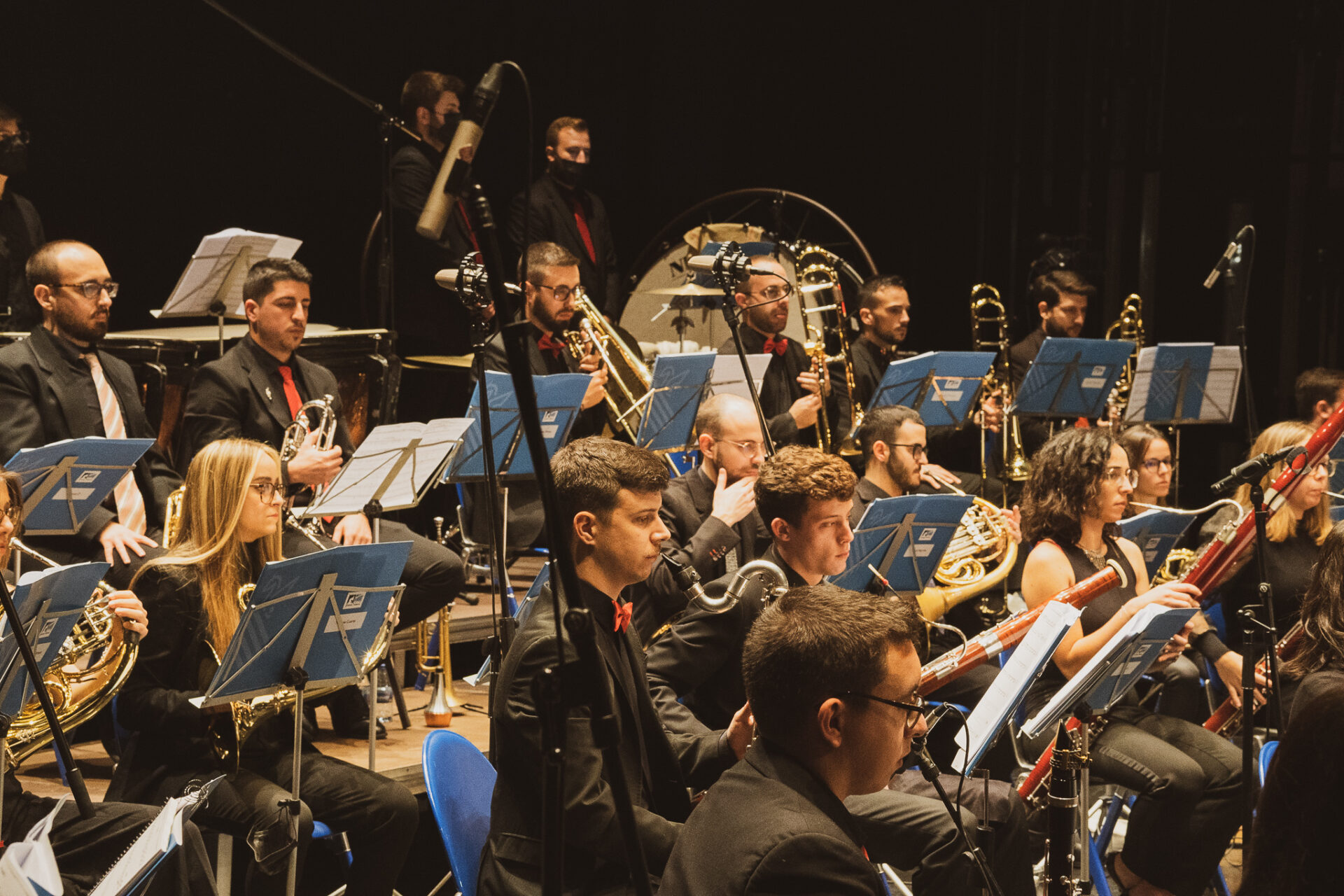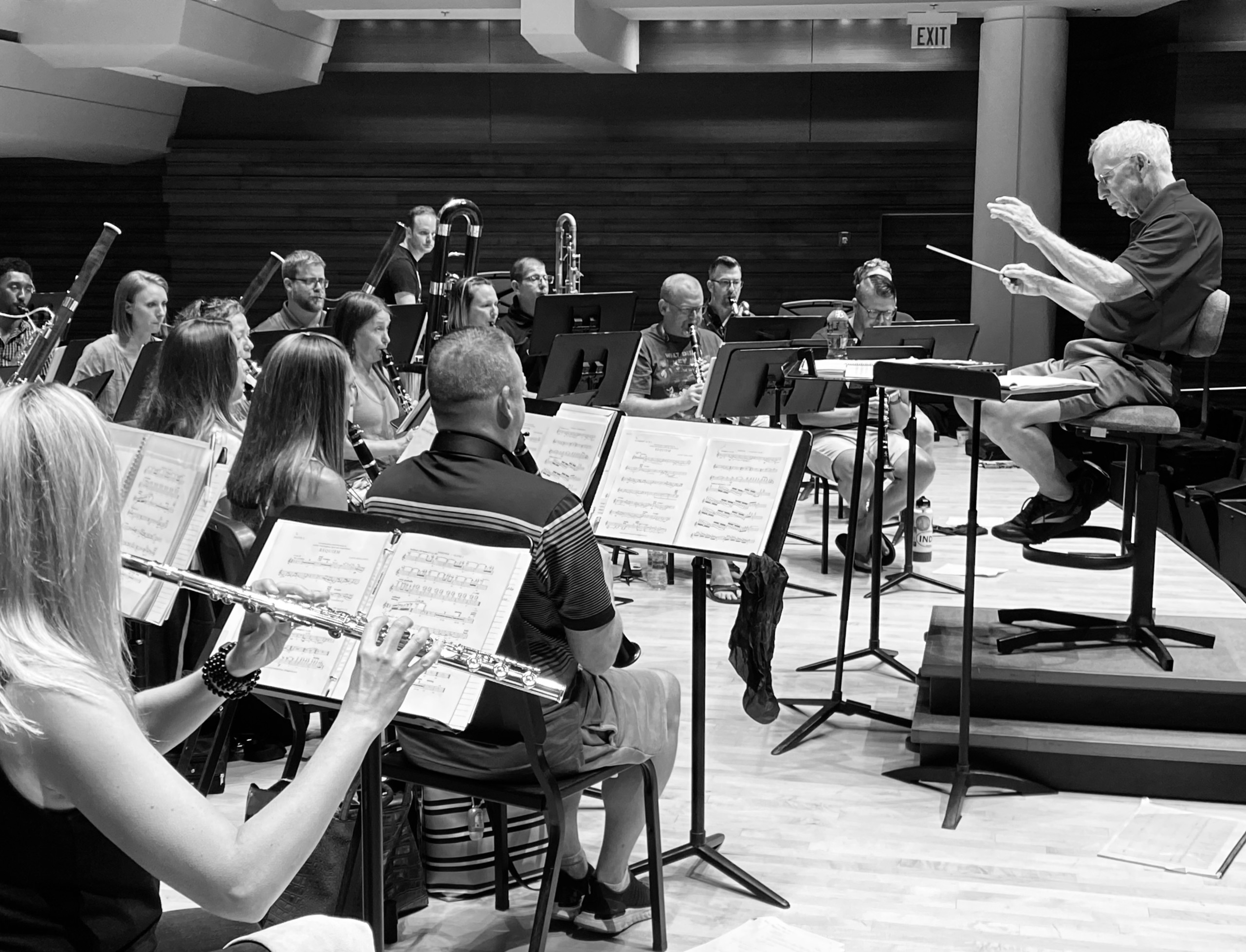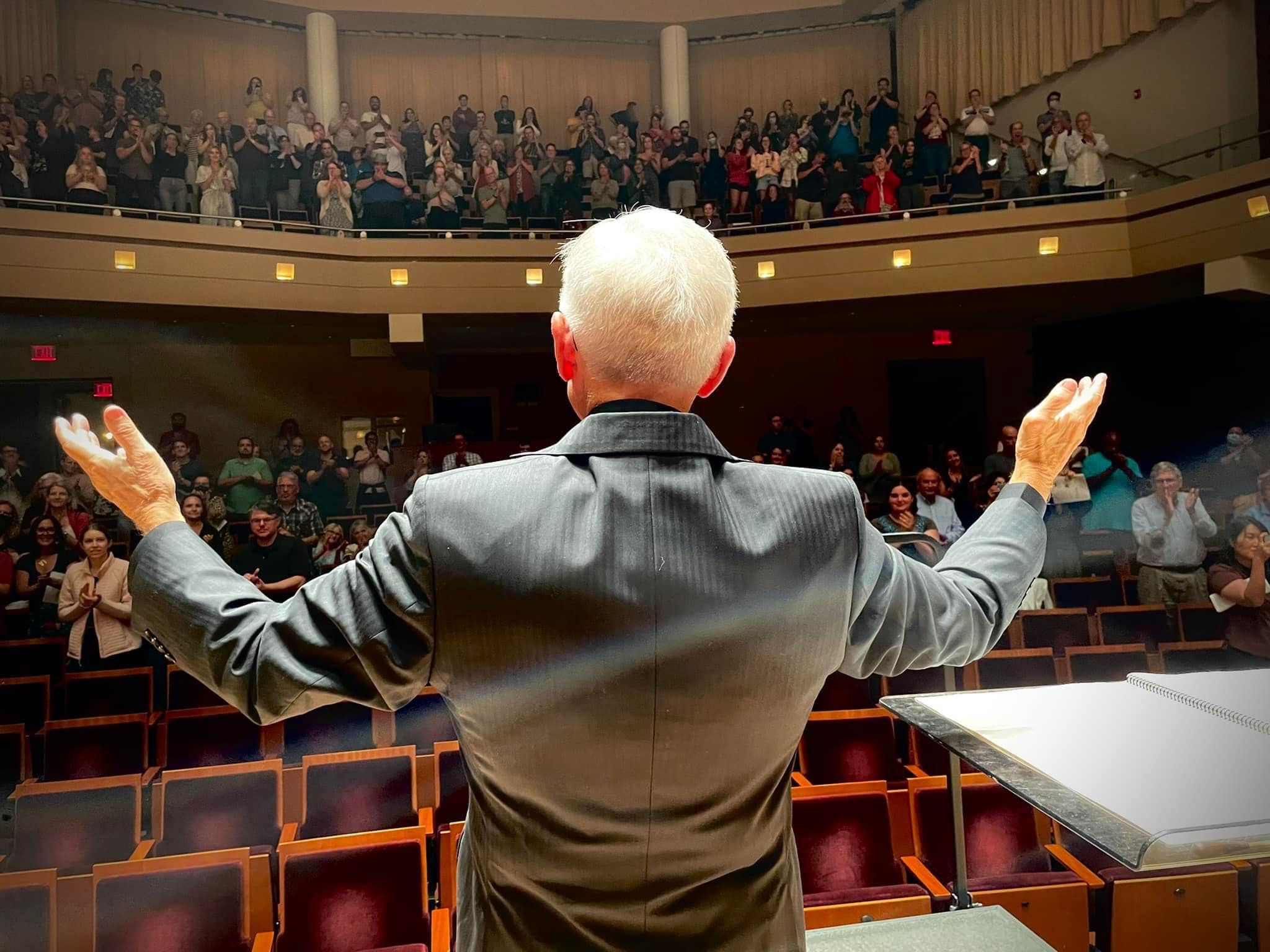Maslanka Weekly highlights excellent performances of David Maslanka’s music from around the web.
To mourn is to be human. It is something we all do in our own way for a variety of reasons. Mourning may look different depending on social, cultural, and religious tradition, but often the reasons for expressing grief remain the same. We mourn when we have lost a dear friend or loved one. We mourn for the sick, helpless, and frail. We may even feel deep sorrow and lament for humanity when we experience a national or global tragedy.
David taught us a lot about mourning through the power and depth of his music. But more importantly, he also taught us and helped us to heal our own wounds. As we celebrate David’s beautiful life and commemorate the two-year anniversary of his passing next week, let us remember the peace and joy David brought into our lives. Let us be a little kinder and a little more helpful toward one another. Let us have a little more love in our hearts – particularly toward those who need encouragement or consolation. I think this would make David smile.
This week, we feature three of David’s works that aid us in times of mourning: Requiem, “Finale – Alle Menschen müssen sterben” from Mountain Roads, and In Memoriam.
Requiem
From David’s Program Note:
A Requiem is a Mass for the dead. This relatively brief instrumental piece with the title Requiem is not a Mass, but serves a parallel function – the need to lay to rest old things in order to turn the mind and heart toward the new.
I have an abiding interest in why humans go to war. I have recently read much about World War II, and was confronted once again with the awful fact of fifty million needless deaths. Shostakovitch thought of every one of his compositions as a tombstone, and wished that he could have written a separate memorial piece for every person who died in war.
I do believe that we are in a major transitional time, and that this transition happens first in each of us. My Requiem is both for the unnamed dead of all wars, and for each person making their own inner step, saying goodbye in order to say hello.
Watch below as Adrian Schneider leads the Dunshan Symphonic Wind Orchestra in an enthralling reading of this work.
More info
- Dunshan Symphonic Wind Orchestra
- Requiem @ davidmaslanka.com
Mountain Roads – VI. Finale – Alle Menschen müssen sterben
From David’s Program Note:
The music of Mountain Roads is a very personal statement. I feel very deeply about every bit of it. The musical plan of it follows the model a Baroque cantata, and style and content reflect my years of study of the Bach chorales, and of Bach in general. Obviously there are no words in my “cantata” but the music revolves entirely around two chorale melodies. The main one is “Alle Menschen müssen sterben” (All men must die) and the second is “Wo soll ich fliehen” (Where shall I run to?)
The title Mountain Roads comes from a dream that I had while writing this piece. In it I was part of a work crew making new roads in high mountain country. It was springtime, the weather was clear, sunny and comfortable, although there was still snow on the ground. The effect of the place was exhilarating as only mountain wilderness can be. It seemed to me that the dream was a beautiful metaphor for new life and new spiritual opening.
The paradox embodied in this exuberant and uplifting music lies in the title of the main chorale “All men must die,” and further reinforced by the second chorale, “Where shall I run to?” The first title suggests the inevitability of death, but is neither morbid nor about mass destruction. The idea of death is not so much about final end as about change. The process of growth is constantly about “dying” to one way of thinking or feeling, and opening to another. After all is said and done, there is the fact of physical death. The awareness of that fact points up our deep attachment to all the forms of this life. It makes experience of all things both deeply sweet and deeply sad. It also suggests the inevitable release of all the forms that we know, and the movement toward whatever exists beyond form.
Watch below as the Khrysos Quartet gives a brilliant performance of this music.
More info
- Otis Murphy
- Indiana University Jacobs School of Music
- Mountain Roads @ davidmaslanka.com
In Memoriam
On March 5, 1988, Susan Eck Lichtenwalter passed away at the age of 44 following a thirteen-month illness. Shortly after her premature death, the students of Kappa Kappa Psi and Tau Beta Sigma at the University of Texas at Arlington approached her husband, Director of Bands Ray C. Lichtenwalter, expressing their desire to honor her memory by commissioning a major work for the UTA Wind Ensemble and the wind band repertoire. In Memoriam is the result of the students’ expression of love and caring.
From Ray C. Lichtenwalter’s original Program Note:
A graduate of Westminster Choir College and a life-long participant in church music as an organist and choir director, Susan’s life exemplified her unswerving Christian faith and her commitment to music as a vehicle for that expression. As a motif for this work, Mr. Maslanka has chosen one of her favorite hymn tunes: “Wer nur den lieben Gott lasst walten” (“If you but trust in God to guide you”). The chorale prelude setting for organ by J.S. Bach was frequently used in Susan’s musical programming.
The opening declamatory statement of the hymn-tune by the brass and percussion, and then by the full ensemble, sets the stage for a work which dramatically captures the conflict and celebration of human life and emotion. The main body of In Memoriam is a large fantasia interweaving variations on the hymn-tune with related thematic material. The quiet conclusion continues the variation process.
Watch below as the Österreichisches Jugendblasorchester gives an emotional performance of this work. (Yes, these are teenagers playing.)
More info
- Österreichisches Jugendblasorchester
- In Memoriam @ davidmaslanka.com
We would love to hear from you! If you know of any outstanding performances of David Maslanka’s music on the web, please email us at maslankaweekly@maslanka.org.

